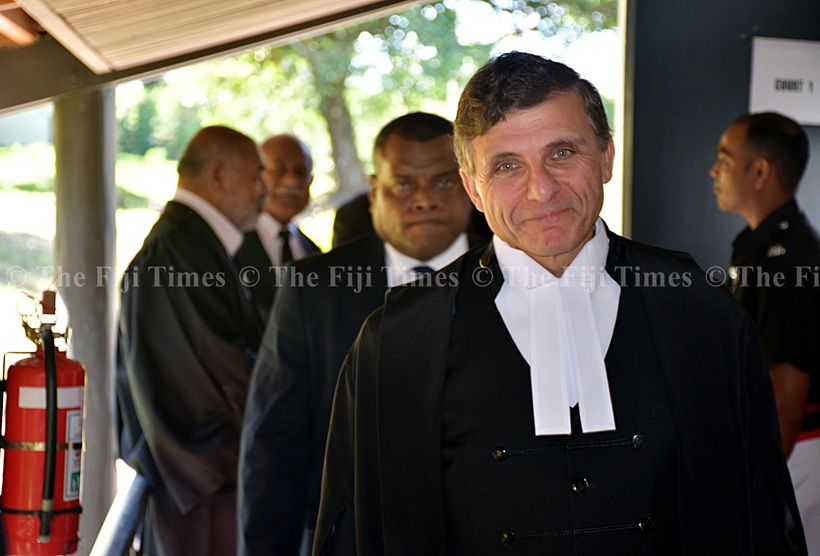The determination of the validity of the 2013 Constitution is a political matter and should not be decided by the Supreme Court.
Fiji Law Society (FLS) intervenor in the ongoing constitutional reference case, Arthur Moses warned that the Court risks undermining democracy by removing the people’s voice from the constitutional amendment process.
He said the Court must focus strictly on legal interpretation and not entertain arguments based on political promises or hypothetical scenarios.
“By accepting the invitation of the State, the Constitution loses its supremacy,” Mr Moses said.
“The State’s request to amend the Constitution to allow a two-thirds parliamentary majority to replace the requirement for a public referendum would minimise democracy rather than enhance it by effectively removing the public from the voting process.”
Mr Moses described the State’s legal submissions as “inherently nonsensical” and warned that the Court was being invited to enter a political, rather than judicial, arena.
He highlighted that three national elections held under the 2013 Constitution, in 2014, 2018, and 2022 had strong voter turnouts, of 84.6 per cent, 71.9 per cent, and 68.3 per cent.
“There have been three elections, in 2014, 2018, and 2022 with voter turnout of 84.6 per cent, 71.9 per cent, and 68.3 per cent.
“That shows the majority of the people of Fiji are participating in the political process established by the 2013 Constitution.”
Mr Moses further argued that the Supreme Court’s jurisdiction is limited to interpreting and applying the Constitution under which it operates, the 2013 Constitution and therefore it does not have the authority to rule on matters related to the earlier 1997 Constitution, referenced in one of the court’s questions.
Answering such questions, Mr Moses said, would contravene the Court’s oath to uphold the current Constitution and violate legal provisions known as ouster clauses, which restrict courts from deciding on issues beyond their proper mandate.

